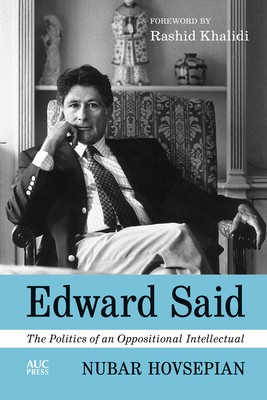
- We will send in 10–14 business days.
- Author: Nubar Hovsepian
- Publisher: American University in Cairo Press
- ISBN-10: 1649031769
- ISBN-13: 9781649031761
- Format: 15.2 x 22.9 x 2.4 cm, kieti viršeliai
- Language: English
- SAVE -10% with code: EXTRA
Reviews
Description
An exploration of the intellectual political thought of one of the most influential thinkers of the last century
Edward Said was one of the most influential intellectuals of the twentieth century. A literary scholar with an aesthete's temperament, he did not experience his political awakening until the 1967 Arab-Israeli war, which transformed his thinking and led Said to forge affiliations with political groups and like-minded scholars. Said's subsequent writings, which cast light on the interplay between cultural representation and the exercise of Western political power, caused a seismic shift in scholarly circles and beyond. In this intimate intellectual biography, by a close friend and confidant, Nubar Hovsepian offers fascinating insight into the evolution of Said's political thought. Through analysis of Said's seminal works and the debates surrounding them, Edward Said: The Politics of an Oppositional Intellectual traces the influence of Foucault on Said, and how Said eventually diverged from this influence to arrive at a more pronounced understanding of agency, resistance, and liberation. He consequently affiliated more closely with Raymond Williams, Antonio Gramsci, and more contemporaneously, with his friends the late Eqbal Ahmad and Ibrahim Abu-Lughod. Said held that it is the intellectual's responsibility to expose lies and deceptions of the holders of power. A passionate advocate for the Palestinian cause, his solidarity did not prevent him from launching a sustained critique of the Palestinian leadership. Hovsepian charts both Said's engagement with the Palestinian national movement and his exchanges with a host of intellectuals over Palestine, arguing that Said's interventions have succeeded in changing the parameters of the discourse in the humanities, and among younger Jews searching for political affiliation. Drawing on his diaries, in which he recorded his meetings with Said, as well as access to some of Said's private letters, Hovsepian illuminates, in rich detail, the trajectory of Said's political thinking and the depth and breadth of his engagement with peers and critics over issues that continue to resonate to this day.EXTRA 10 % discount with code: EXTRA
The promotion ends in 23d.22:35:30
The discount code is valid when purchasing from 10 €. Discounts do not stack.
- Author: Nubar Hovsepian
- Publisher: American University in Cairo Press
- ISBN-10: 1649031769
- ISBN-13: 9781649031761
- Format: 15.2 x 22.9 x 2.4 cm, kieti viršeliai
- Language: English English
An exploration of the intellectual political thought of one of the most influential thinkers of the last century
Edward Said was one of the most influential intellectuals of the twentieth century. A literary scholar with an aesthete's temperament, he did not experience his political awakening until the 1967 Arab-Israeli war, which transformed his thinking and led Said to forge affiliations with political groups and like-minded scholars. Said's subsequent writings, which cast light on the interplay between cultural representation and the exercise of Western political power, caused a seismic shift in scholarly circles and beyond. In this intimate intellectual biography, by a close friend and confidant, Nubar Hovsepian offers fascinating insight into the evolution of Said's political thought. Through analysis of Said's seminal works and the debates surrounding them, Edward Said: The Politics of an Oppositional Intellectual traces the influence of Foucault on Said, and how Said eventually diverged from this influence to arrive at a more pronounced understanding of agency, resistance, and liberation. He consequently affiliated more closely with Raymond Williams, Antonio Gramsci, and more contemporaneously, with his friends the late Eqbal Ahmad and Ibrahim Abu-Lughod. Said held that it is the intellectual's responsibility to expose lies and deceptions of the holders of power. A passionate advocate for the Palestinian cause, his solidarity did not prevent him from launching a sustained critique of the Palestinian leadership. Hovsepian charts both Said's engagement with the Palestinian national movement and his exchanges with a host of intellectuals over Palestine, arguing that Said's interventions have succeeded in changing the parameters of the discourse in the humanities, and among younger Jews searching for political affiliation. Drawing on his diaries, in which he recorded his meetings with Said, as well as access to some of Said's private letters, Hovsepian illuminates, in rich detail, the trajectory of Said's political thinking and the depth and breadth of his engagement with peers and critics over issues that continue to resonate to this day.

Reviews